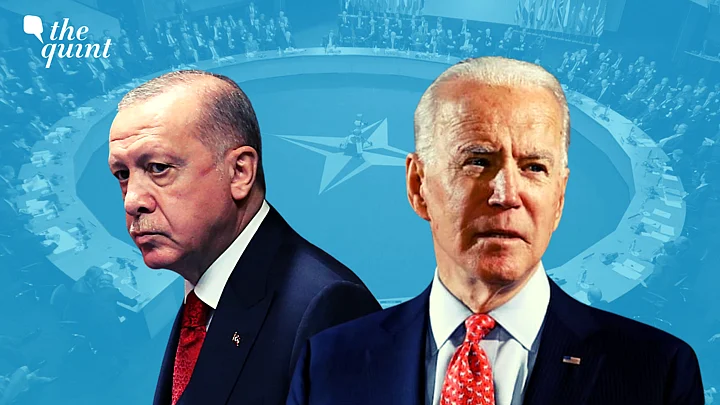Turkish approval is essential to Sweden and Finland's membership in NATO, which requires an absolute consensus to admit a new member. All of NATO's 30-member countries hold the power to veto a new member.
While NATO Secretary-General, Jens Stoltenberg, voiced confidence in the alliance's aim to admit Sweden and Finland swiftly, Turkish President Recep Tayyip Erdoğan's declaration indicates a bumpy road ahead for the two Nordic countries.
President of the United States, Joe Biden, also expressed strong support for the Nordic countries' bid to join NATO in the face of the Russian invasion in Ukraine, and offered cooperation during events of "aggression," on Wednesday.
"While their applications for NATO membership are being considered, the United States will work with Finland and Sweden to remain vigilant against any threats to our shared security, and to deter and confront aggression or the threat of aggression."US President Joe Biden
Why Is Turkey Objecting to the Membership?
Turkey has historically been supportive of NATO's expansion, with a belief that an "open door" policy will enhance European security, as reported by The Guardian.
In the past, it has spoken in favour of the possibility of Ukraine and Georgia joining NATO.
Erdoğan's objection primarily stems from grievances with Stockholm's – and to some extent, Helsinki's – perceived support towards the banned Kurdistan Workers' Party (PKK), the far-left Revolutionary People's Liberation Party/Front (DHKP-C), and supporters of Ferhullah Gulen, a US-based Muslim cleric, who Turkey claims was behind an unsuccessful military coup in 2016.
Several Kurdish exiles have taken refuge in Sweden over the past decade, as have followers of Gulen's movement more recently.
As reported by The New York Times, Ankara's opposition to the two countries' membership applications is not considered to be its final position, but rather an effort to have their concerns addressed by NATO's member countries more seriously.
While Ankara has frequently accused allies of turning a blind eye towards Turkish security concerns, restrictions imposed by European Union (EU) countries on the sale of military equipment to Turkey, following their military incursions into Northern Syria in 2019, has further angered the Erdoğan administration.
Justifying his objection, Erdoğan stated that his country did not wish to repeat its "mistake," wherein Ankara agreed to readmit Greece into NATO's military structure in 1980. He maintained that the move allowed Greece "to take an attitude against Turkey" with support from NATO.
Speaking to reporters on Sunday, Jens Stoltenberg said that Turkey's intention was not to block the two countries' membership. "My intention is still to have a quick and swift process," Stoltenberg said. "I'm confident that we will be able to address the concerns that Turkey has expressed in a way that doesn't delay the membership or the accession process."
(With inputs from The Associated Press, The Guardian, and Forbes.)
(At The Quint, we question everything. Play an active role in shaping our journalism by becoming a member today.)
